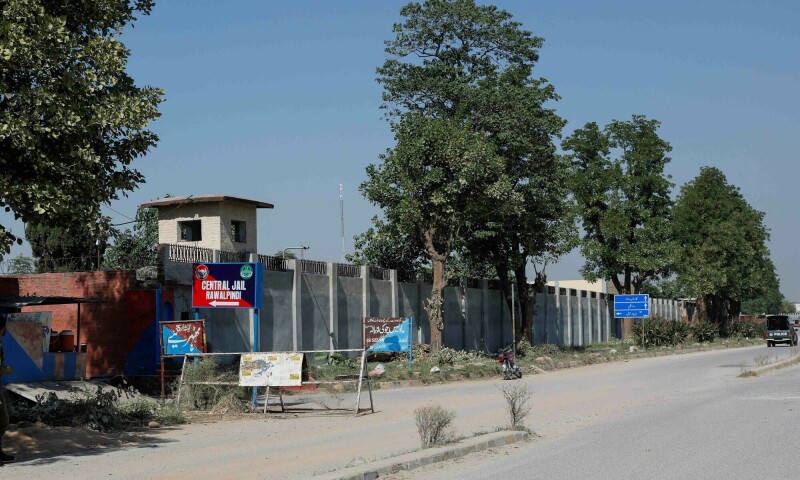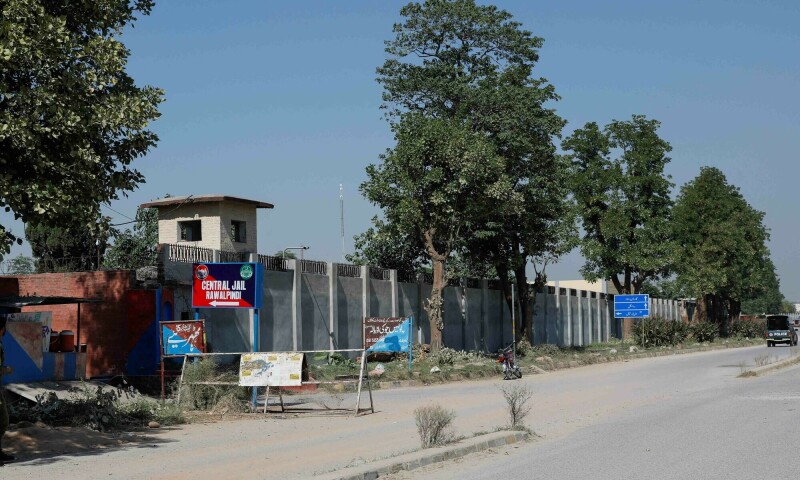

LAHORE: The Central Jail Rawalpindi, commonly known as Adiala Jail, has reported a massive outbreak of HIV-positive cases, with 148 infected inmates — the highest number recorded in any jail of province so far.
This alarming situation has exposed serious lapses on the part of the Prisons Department and the Punjab Aids Control Programme (PACP).
Adiala has been in the headlines lately as former PM Imran Khan is also incarcerated there. However, it must be kept in mind that Mr Khan is kept in isolation and is not allowed to mingle with other inmates.
The prison is currently very overcrowded as well, housing 4,337 prisoners against its authorised capacity of 1,994.
PACP report reveals there are 645 infected individuals in Punjab’s 43 prisons; some of them are already receiving anti-retroviral therapy
The presence of such a large number of HIV-infected prisoners poses a grave risk to the health and lives of other inmates if immediate measures are not taken to curb the transmission of the virus.
Medical experts explain that HIV attacks the body’s immune system, and remains incurable.
“Once you contract the infection, your body cannot get rid of it. However, there are medicines that can control HIV and prevent complications. Everyone diagnosed with HIV should be placed on Anti-Retroviral Therapy (ART),” one medical expert said.
They expressed serious concern that if a high-profile prison like Adiala is struggling to contain the rapid spread of HIV/Aids, the situation in other jails could be even worse.
Numbers
The PACP report sheds light on the number of prisoners suffering from HIV/Aids across the province. It reveals that the number of HIV-positive inmates in all of Punjab’s 43 prisons has reached 645, with the highest number of cases being reported from Adiala Jail, where 148 inmates have tested positive for HIV.
According to official figures, 83 inmates were tested positive for the HIV/Aids in District Jail Lahore (also known as Camp Jail), followed by 37 in Central Jail Faisalabad, and 27 each in Central Jail Lahore (also known as Kot Lakhpat prison) and Central Jail Gujranwala.
In the remaining 38 prisons of Punjab, the combined number of HIV-positive inmates stands at 323. An official privy to the development claimed that several HIV-positive inmates were facing an interruption in the provision of medicines in the jails.
As per the PACP protocols, after screening process, jail authorities shift the suspected HIV patient to the ART centre of the district concerned, where the inmate undergoes further testing to confirmation the diagnosis.
It repeats tests using elaborate methods, and after confirmation that the inmate has tested positive, it shifts them back to prison, where the programme provides them with medicines for a three-month period.
PACP teams normally visit jails and perform screening of all inmates every six months or so.
Alarming situation
The HIV/Aids outbreak in the jails of Punjab, particularly, in Adiala, has caused alarm among PACP authorities.
This was evident from an official correspondence, wherein the PACP head immediately activated all the ART Centres established under the programme.
“All ART Centres shall undertake fortnightly visits to jails within their respective districts to ascertain the total number of HIV-positive patients registered from the jail and the number of those presently receiving Anti-Retroviral Therapy,” reads a letter issued by PACP Project Director Dr Summaira Ashraf.
She emphasised that the centres must ensure all registered jail patients continue to receive treatment without interruption and any gaps, deficiencies or challenges observed during the visit must be clearly identified and reported.
Talking to Dawn, Punjab Inspector General (Prisons) Mian Farooq Nazeer said the PACP had taken over responsibility of screening all new inmates for various diseases, including HIV/Aids and hepatitis B and C, a couple of years ago.
Following the guidelines, the programme was to provide kits at the health facilities of each jail where the prisoners were tested for chronic diseases, adding that jail doctors would then perform tests on the patients under the programme’s guidelines. However, he maintained that his department had nothing to do with the screening of inmates entering or leaving prisons.
Published in Dawn, August 30th, 2025




